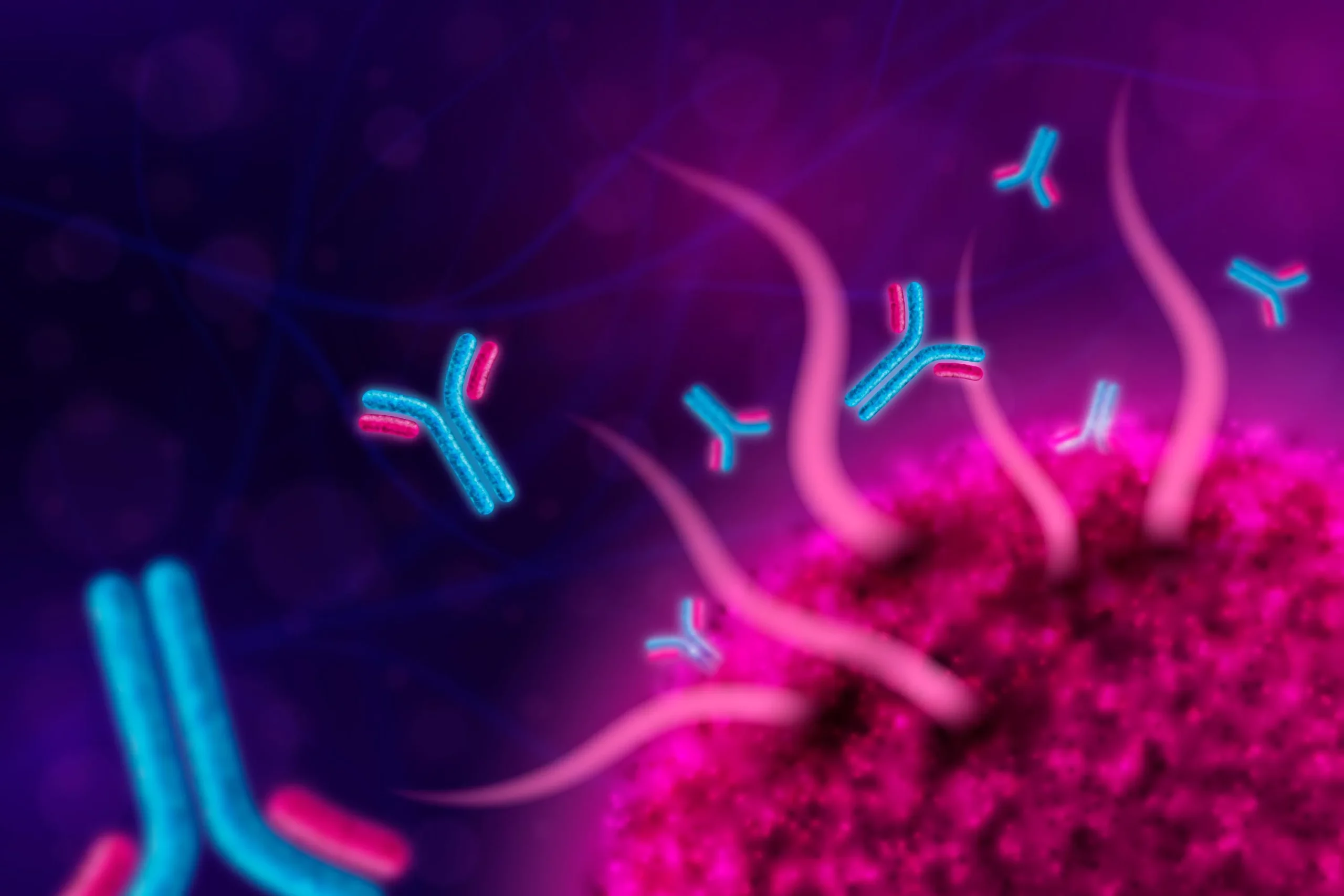Introduction
In recent years, the field of biomedical research has observed remarkable advancements owing to the integration of nanotechnology and bioengineering. One such innovation reshaping the protein purification landscape is the development of a recombinant streptococcal protein G-modified metal-organic framework, referred to as His-rSPG@ZIF-8. A team of researchers from Shenyang Medical College in China has successfully synthesized this material, which demonstrates unparalleled specificity in isolating immunoglobulin G (IgG) from human serum. This article delves into the implications of their study, which was published in the February 1, 2024, issue of Analytica Chimica Acta.
The researchers harnessed the ability of His-tagged recombinant protein G from Streptococcus to selectively bind to the Fc region of IgG antibodies. They coupled His-rSPG to a metal-organic framework known as ZIF-8 (Zeolitic Imidazolate Framework-8) to create a solid extractant that exhibits exceptional performance in the selective purification of IgG from complex biological mixtures like human serum.
This innovative extractant is a testimony to the creative blend of biochemistry and material science. Notably, the study’s lead author, Ma Yufei of Shenyang Medical College, and the research team including Xiang Yuhan, Li Xin, Zhang Dandan, and Chen Qing have provided an extensive characterization of this composite material. Techniques such as Fourier transform infrared spectroscopy (FT-IR), Raman spectroscopy, X-ray photoelectron spectroscopy (XPS), scanning electron microscopy (SEM), and transmission electron microscopy (TEM) underscore its unprecedented structural and functional properties.
The Significance of IgG Purification
Immunoglobulin G (IgG) represents the most abundant class of antibodies found in human blood and is pivotal for immune defense, diagnostics, and therapeutic interventions. Purifying IgG from human serum is crucial for developing antibody-based drugs, diagnostic kits, and for performing various immunological research projects. The traditional methods for IgG purification, such as protein A or G affinity chromatography, while effective, are often hampered by high operational costs and limited selectivity against contaminants.
Advantages of His-rSPG@ZIF-8
The His-rSPG@ZIF-8 composite’s synthesis and application mark a substantial advancement in the separation sciences. The material combines the biological specificity of protein G with the robustness and tunable pore environment of ZIF-8. The result is a highly selective, stable, and potentially cost-effective medium for IgG purification.
When tested in a Britton-Robinson buffer with a high salt concentration, the His-rSPG@ZIF-8 composite retained its exceptional binding efficiency for IgG. This demonstrates the composite’s potential to operate under challenging conditions, making it suitable for processing complex biological samples.
The Future of Antibody Purification
The development of His-rSPG@ZIF-8 paves the way for new strategies in antibody purification and recovery. With the ability to rapidly and selectively isolate IgG, this technology may revolutionize the production of therapeutic antibodies and diagnostics. This highly selective material could also enable more efficient recovery of pure IgG for research and clinical applications, leading to cost savings and improved accessibility of vital biomedical products.
Scientific Validation and Peer Review
Published in Analytica Chimica Acta, a prestigious journal in the field of analytical chemistry, the research has undergone rigorous peer review, ensuring the credibility and significance of the findings. The extensive use of advanced spectroscopic and electron microscopy techniques to characterize the material further solidifies the veracity of the study.
Ethical and Financial Transparency
In line with ethical scientific practices, the authors have declared no known competing financial interests or personal relationships that could have influenced the work reported. This transparency enhances the trustworthiness of the research within the scientific community and amongst stakeholders in the biomedical industry.
Conclusion
The His-rSPG@ZIF-8 composite represents an inventive leap in antibody purification technology. Its implications for the advancement of biomedical research and production are profound. With the study garnering attention, it is sure to stimulate further research and development in this realm, catalyzing innovations that may eventually extend beyond IgG purification to a plethora of protein-based applications.
DOI and References
DOI: 10.1016/j.aca.2023.342175
References
1. Ma, Y., Xiang, Y., Li, X., Zhang, D., & Chen, Q. (2024). Recombinant streptococcal protein G-modified metal-organic framework ZIF-8 for the highly selective purification of immunoglobulin G from human serum. Analytica Chimica Acta, 1288, 342175.
2. Zhou, H.-C., Long, J. R., & Yaghi, O. M. (2012). Introduction to Metal–Organic Frameworks. Chemical Reviews, 112(2), 673-674.
3. Hermanson, G. T. (2013). Bioconjugate Techniques. Academic Press.
4. Naik, A. D., Meneguin, A. B., & Miyazaki, S. S. (2020). Advancements in the Purification Techniques of Immunoglobulins. Gels, 6(3), 14.
5. Li, P., Modica, J. A., Howarth, M., & Furst, A. L. (2019). Plug-and-play optical materials from fluorescent protein-based polymers. ACS Applied Materials & Interfaces, 11(34), 30698–30707.
Keywords
1. Immunoglobulin G purification
2. His-rSPG@ZIF-8 composite
3. Metal-organic frameworks
4. Protein G affinity chromatography
5. Recombinant streptococcal protein G
